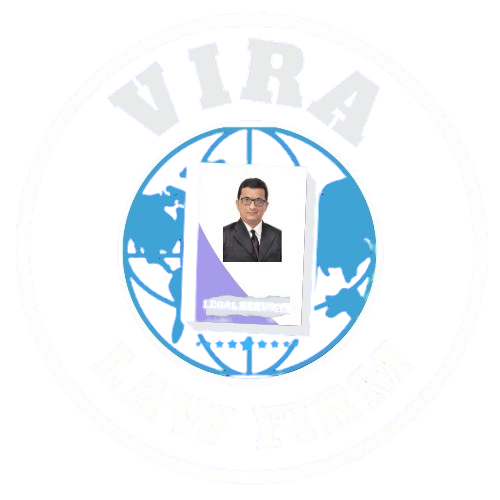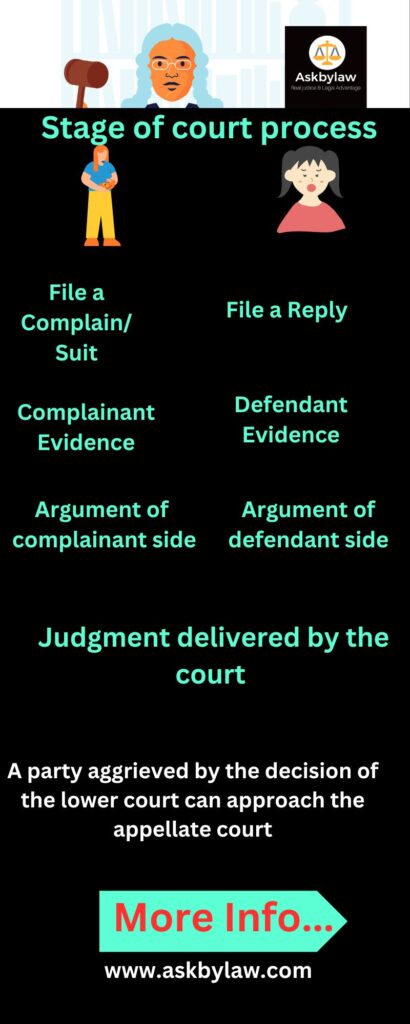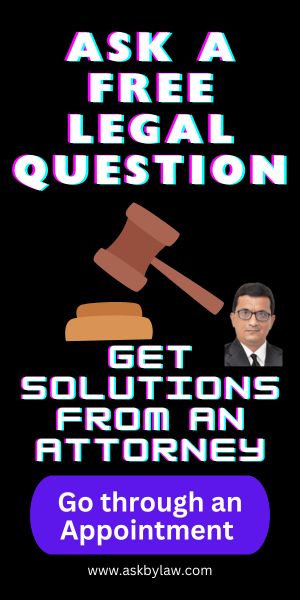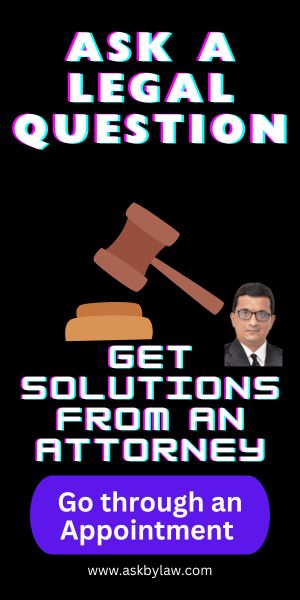Hi, folks, possession law and remedy Related discussion with you.
You are a prince not a frog
Are you listening to me! Really!
Introduction: possession law and remedy
You see first. Possession is a very important term in human life. If there is any land property, possession is its heart. The person who owns the property can be called its owner. The owner and occupier of any land property can use it as he wishes.
God and the law give anyone the right to own and enjoy land and property. with And such a right is inherited either by purchasing land or property or otherwise.
There are two main types of property. And, the first immovable property and the second movable property. And, Real estate often includes properties such as land and buildings. See. And movable property includes gold, jeweler, tools, decor, etc.
Often disputes arise over the property of a person or family or business or company. It is said that jewels, land, and wife are the three places of origin of this controversy.
Possession is considered a very important aspect of a property dispute. In some cases, ownership of the property is determined on the basis of possession. And, a human being can seize someone's property through fraud and conspiracy. In due time. This poses a serious problem for the original owner and occupier of the property. It is imperative for the original owner and occupier of the property to resort to the law.
What are the rights and duties of the original owner and occupier of the property and what is their role?. Let me start the discussion with you in detail.
Hopefully, the information provided in this article will increase your legal knowledge.
You can also read: Correction in the birth certificate
What is ownership in law?-possession law and remedy
In effect. Ownership of property can define as "a legal relationship between an individual or a group or a company or a government for an object and enjoyment". And, Furniture can be an animal or law patent or copyright movable property. While bungalow or building or land can real estate.
The task of defining possession is very difficult and arduous. And, the rule of law must do.
Salmond. Legal scholar, says that "a person who uses a material thing solely by a constant, self-controlled; constitutional demand can be known as possession".
As per Austin, "ownership means that everyone who is subject to the law granting the right benefits against it. And to give something to a user of an indefinite nature." And absolute ownership is defined as "unlimited rights in the user's point of view, unrestricted in the point of nature and unlimited in the period". It is a right that is available to the whole world. Ask a free question.
You can also read: Arbitration clause in partnership : Best 7 ways to aware and obtain 101% free legal information
What does possession is 9/10 of the law mean?
In sum. The word possession. These are the nine points mentioned in the law. That is one sentence. This is used in practice to indicate that if you actually own a property, you will be able to claim ownership of it more easily than someone else. And who just says it's his or hers.
- Types of lordship (ownership)
- The different types of lordship (ownership) can show to you as follows.
- Absolute lordship (ownership).
- Contingent lordship (ownership).
- Sole lordship (ownership).
- Corporeal lordship (ownership).
- Incorporeal lordship (ownership).
- Lawful lordship (ownership).
- Co-lordship (ownership).
- Vested lordship (ownership).
- Limited lordship (ownership).
- Trust and beneficial lordship (ownership).
- Equitable lordship (ownership).
-
Why is it necessary to protect the possession of the property?
Read carefully. You need to protect the possession of your property for the following reasons:
- It is necessary to protect the person in possession from forcefully illegal acts.
- A man takes possession of an object and increases its area as he free wishes. Because. As well as he has expanded his personality into that thing.
- Possession is the conclusive evidence of lordship(ownership)
- Possession must be protected from any kind of forceful torts.
- The will of the person involved in the possession. Freedom of will is an essential element of personality. It must then be protected as long as it does not conflict with the universal will of the country.
Possessory Reliefs
Wow. The first reason for possession is proof of property ownership. He is able to find his true owner from any corner of the world. But a true owner has to prove over a period of 12 years that he is the real owner of the property. Otherwise, the person occupying the property may become the owner after the expiry of the period of 12 years.
Great. A second reason for possession measures is that proving ownership is always more difficult than proving possession. And so it is unjust that one who has seized property through violence should not be allowed to transfer the heavy burden of proof from own shoulders to the shoulders of the opponent. The one who takes the thing by force must restore it. And he is free to prove that he is the rightful owner of the property.
Awesome. The second major cause of ownership rights is found in the serious imperfection of initial ownership rights. And the position of the plaintiff is very difficult. look. also. And no one is allowed to occupy the beneficial position of the defendant. look. look he insists that the country of origin must be restored first. Finally. Occupancy should be given first to the person who has it and only then can the other person's claims be settled.
You can also read Correction berth certificate-बच्चेके जन्म प्रमाणपत्रमें क्षति या गलतीका सुधार कैसे कराये ?
What are the elements of ownership?-possession law and remedy
Good news. Let me tell you where the elements of ownership of any person's property are.
1) The right of possession
Custody means "physical control over an object or thing. In order to build ownership, the owner must be entitled to possession of the property.
2) The right to own the thing, which he owns
This is right in the strict sense. It does not have to be. Possession for him may have been wrongly deprived or he may have voluntarily removed himself from it.
3) Right to use and enjoy
The property owner has the right to use and enjoy his property subject to certain restrictions/rules by law/state. These are the freedoms. The right to manage it, for example, the right to decide how to use it and the right to receive income from it. These are in fact freedoms; the owner has the freedom to use the item. That is, he is not under any obligation to use or use it in agreement with other people or to interfere with it.
4) Right to destroy (freedom) or disenfranchise
It means the right to dispose of gifts or mortgages or leases etc. The owner's right to the property is unrestricted, including the right to the apex. The right to enjoy and destroy is direct freedom.
5) Eternal rights / indefinite period
As much as. The owner of the property has a permanent right or right to the property for an indefinite period. Those who are not owners may be entitled to own or use the item but the period for which they are entitled is limited. But in the case of ownership, it is an indefinite period. Thus the interest of the guarantor or lessee ceases when the term of bail or lease expires. But the interest of the owner is eternal and it does not end even in the death of the owner, because in that case, the property will go to his legal heir.
6) Real rights
In case. The owner's right to the property is inherited. He goes into legal hair after his death.
7) Ownership residue is eligible
from time to time. It is possible that an owner has set aside or granted any rights in respect of the things he owns. Yet he continues to own things, keeping in mind the remnants of ownership. For example, if the owner gives his property to A and Simplification B, the ownership of his land now belongs to him. For example, it remains when fewer rights have been taken away.
What are the elements of possession?-possession law and remedy?
As well as possession law and specific remedies. Let me tell you where the elements of possession of any person's property are.
Body of possession of the property
Nice. The first corpus means effective physical control of the object. And the physical power to deal with the subject immediately and to exclude any foreign agency from it. This must exist in every acquisition of possession. While immediate physical strength is not necessary for the occupation to continue. As it was required for it and relies on the constant power to reproduce the original relationship as desired rather than to continue the occupation.
Property animosity:
Good. The second things are the intent to hold a mental element or thing as the owner against all others by enmity over the property. And. in other words. It has a conscious purpose of excluding others from the substance. When without this mental element, there can be no possession. And it reflects the owner's intentions. And in the case of Animus Domini, there are some points worth noting.
Great. The three most elements of possession like intent, knowledge, and physical control.
You are also read: Crimes against women in India statistics 2020: Expectations vs. Reality
What are the elements of adverse possession?-possession law and remedy?
you see. Let me tell you where the elements of adverse possession of any person's property are.
Component one - actual entry and special possession
Nice. To satisfy this element. The adverse owner should enter. And should live on it, or use the land for the entire period of adverse occupation. And in addition, the owner must obtain possession of the land to exclude the true owner. Possession shared with the rightful owner is not "hostile" to the rightful owner. And so it is not an adverse occupation. The theory behind this element is that the "true" owner of the property cannot be expected to take action against the owner who did not exclude him from the property.
The hostile owner does not actually need to occupy the entire space. If the owner enters the property. And excludes the owner from the property, even if the hostile owner actually uses only part of the property, he or she will be considered in possession of the entire property. The "exclusive" possession element means that the hostile owner must have the property to exclude the rightful owner. He or she may own the property together with another person. In that case, the two (or more) owners together would have adversely occupied the property. And if this hostile occupation by multiple people succeeds. Then all the people who own the property will become the owners of the property as co-tenants.
In time. Remember that adverse possession does not have to be effective on the entire property. A person can successfully acquire a portion of the property as long as the owner excludes the real owner from that portion. And hostile possession will only succeed in transferring the property that the hostile owner actually had
Component two- open and infamous possession
Compare to. In order for effective possession of the property to be effective, it must be done in a way that is visible to everyone. And in other words. Possession should be done in such a way that the real owner can see the possession if he takes the initiative. Adverse possession is a property that is not normally inspected or whose occupation is not clear to the rightful owner. So that adverse possession is ineffective. And thus, in order to adversely occupy an underground property, such as a coal mining shaft or part of an oil well, it is often necessary to show that it was occupied by the rightful owner. As well as every time the rightful owner comes to inspect the land, the occupier leaves the land, the occupation will not be considered at all hostile. Because. It shall not open and notorious. Rest assured.
Component three-counter and under the right claim
In short. Sufficient for this element is required that the owner enter the property without the consent of the owner. As well as. And should be occupied and the owner should own the property with the intention of staying on the property permanently. It is not necessary for the owner to actually claim that he has a legal right to take possession of the property. And it is enough that the owner intends to stay on the property permanently. Read more...
The main consequences of this rule are that, possession law and specific remedy
- As soon as. The tenant of the property cannot claim adverse possession against him or her landlord. Because, by definition, a lease allows that tenant to live in the space. So that possession is not hostile. And the same goes for co-tenants. Occupancy by a single tenant is not considered unfavorable as all co-tenants have the right to own the entire property.
- And if the occupier obtains permission from the "true owner" to occupy the property, he cannot adversely occupy the property.
- Adverse possession of the property is ineffective if the owner verbally acknowledges the fact that the owner is the "real" owner of the property. Look. And he or she is just the owner. Possession is not considered adverse. Also, it is also important to note that in order for adverse possession to be valid, the possession does not have to be with malicious intent or even for the purpose of depriving the property owner. like. And even if the owner did not realize that he was committing an act of adverse possession, such possession may act to transfer the title. Also, some states have changed the rule instead. And has instead applied a more subjective test for adverse possession. In these jurisdictions. State if a person occupies the property in good faith and under false pretenses that he or she already owns the property. So it does not create an adverse occupation.
Element Four - Continuous and Uninterrupted Possession
The last element of adverse possession of the property is that the occupier should have uninterrupted possession of the land for a period of the statutory period. This does not mean that the owner should be on the ground 24 hours a day, seven days a week, 365 days a year. And instead, this element requires that the owner should occupy the land to such an extent that the average owner will occupy the property.
To that end. The degree to which property is considered to be continuous and uninterrupted. Usually varies depending on what it is used for. And if the property is used as a permanent residence. like And then the hostile owner has to live in the house because the average person lives in a permanent residence. And if the house is a vacation house, its occasional use at scattered times during the year may be sufficient for a statutory period. As well as look And if the hostile owner intentionally abandons the property for any period without intent to return. Then the continuity of the adverse occupation is lost and the adverse occupation period will resume from the beginning of the clock if it returns and takes possession of it. Read more...
You are also read: What is digital payment in Hindi (India) after 2022 year?
Conclusion-possession law and remedy?
By all means. For that reason. The term ownership and possession of the property in the life of any person contains the essence of his whole life and life. And that is why it seems as if the property of a person has been snatched from him by force in criminal circumstances or by fraudulently torts his property.
A person from whom a third party has taken possession without his consent should seek recourse to the court within a time limit of 12 years. This is because according to the last conclusion of the Supreme Court of India, the owner of real property should be able to reclaim his seized property within a time limit of 12 years. But if the rightful landowner fails to do so, the law may presume possession in favor of the artificial owner.
possession law and specific remedy. The principle of law is that law helps an aware man, not a sleeping man. That is why it is necessary and imperative for the real property owner to implement this understanding as soon as possible.
It is necessary and imperative to prove that the rightful owner was enjoying the right of ownership and quiet and direct possession of the disputed property for more than 12 years.
In case. This requires the original real owner of the property to consult a specialist lawyer of the property and hand over to him all the papers pertaining to the property. And a restraining order should be obtained as soon as possible. So that any significant change in the condition of the property is stopped.
jAY HIND, JAY BHARAT
HAVE A GOOD DAY












